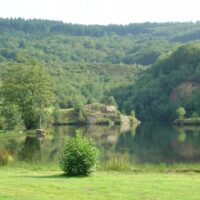000
100
%
Territory, Environment, Health

Présentation
The area is characterised by an approach rooted in territories, from early modernity to the very contemporary, in their environmental as well as their social and economic dimensions.
It is grounded in two of LARHRA’s research specialities: the study of mountain areas and urban worlds, in both their environmental and social aspects. The members of this area are involved in various multi-disciplinary and international projects (Labex ITEM and IMU), and intend to strengthen their collaborations with the health, life, environmental, and engineering sciences.
We focus on the various ways in which territories are constructed (sub-area 1), on the role played in these processes by the relationship between the environment and health (sub-area 2), and on the economic issues involved in harnessing resources for territorial development (sub-area 3).
The group organises a monthly seminar open to doctoral and master’s students.
The area Territory, Environment, Health (TES) places at the heart of its work some of the major issues facing contemporary society, notably the interaction between the actions of human societies and environmental changes, and representations and policies pertaining to health.
Thématique 1
The Construction of Territories: Policies, Memories, Conflicts
This theme encompasses works on the history of territorial construction over the long term, through the control of space (borders, land) and the deployment of territorialised public policies, on the one hand, and the processes of identity construction (memories, heritage) at different scales, on the other, and ultimately their conflictual dimensions. Territorial construction is studied throughout the modern and contemporary periods. An interdisciplinary approach is also adopted with regard to connections between memories, uses of the past, and territory. Finally, we aim to examine the relationship between territory, citizenship (in the sense of participation in a political community), and social conflict, in contexts of territorial change or reconfiguration (shifting of borders, migration, (re)territorialisation of populations following major developments or urban renewal policies, land struggles, etc.).
Thématique 2
Territory, public health and the environment
This theme builds on the research begun under the previous contract on the history of the relationship between the environment, expert assessments, and health risks, in particular through the study of pollution and urbanisation, and on that of the relationship between beauty, health, and territory via the history of cosmetics. These histories are developed in a variety of temporal and geographical contexts (the Alps, Italy, Spain, the Near East, Latin America, and the USSR), enabling us to consider the relationship between health and territory over a long period of time.
The members of the research area also intend to contribute to current debates on environmental health and emerging health risks. The researchers involved in this theme examine the relationships between territories – particularly urban and mountainous – and healthcare operators, institutions, and facilities. The workshop ‘Health, Environment, Urban Spaces, and Assessment’ (SEVE) is associated with this theme.
Thématique 3
Territories, resources, and environmental constraints
This theme extends our work on the history of natural hazards, pollution, the exploitation of ‘natural resources’, and instances of anthropisation. Drawing on works carried out in modern archaeology and on multidisciplinary approaches involving the natural sciences, life sciences, and now medicine, the we intend to contribute to a better understanding of the interactions between the environment, social practices, and socio-economic regimes, by drawing on the spatial and temporal dimensions of these different approaches.
